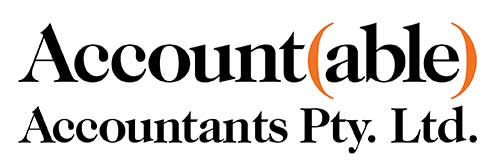Whose name should our rental property name be in? By Pat Hoey

With a few clients asking me recently about whose name a rental property should be in when they are buying a property, it depends on a number of personal circumstances and factor, so I have put together the following tips:
1. You need to determine if the rental property is going to be making a profit (positive geared) or a loss (negative geared).
2. If making a profit, its preferred to be in the lower income person’s name, to reduce the tax payable on the profit each year.
3. But if making a loss, its preferred to be in the higher income person’s name, to maximise the tax refund on the rental loss tax deduction each year.
4. However, a long-term view needs to be considered for this, as if you are planning on keeping the property for 10-20 years, you need to consider what your loan and depreciation costs will be in the longer term, to see if these amounts will continue to create yearly rental losses.
As if the rental loss is only short-term, then maybe its best to be in the lower income earners name, who will get a lessor tax deduction in first few years, but they pay less tax in the later years on the yearly rental profit, and also pay less capital gains tax when its sold.
5. Capital Gains Tax (CGT) is payable in the year you sell the property. Which generally the profit is calculated based on the selling price (less any direct costs) less the property purchase costs (and other purchase costs). So with this profit, normally half of it is tax-free, and the other half goes as income in the property owner’s tax return. So the capital gains tax will be payable depending on the owner(s)’ income levels in the year it is sold. Which if held until retirement, this could be a lot lower than what your income is now (and there is a benefit of being joint owners, to help spread this capital gain at lower tax levels in retirement).
6. Buy in joint names? As mentioned above, this will depend on what each half’s owner’s income levels are, and what the year-by-year tax difference will be. Which the capital gains tax can be lower when sold, if you are able to split the capital gains profit between 2 people instead of one person.
7. Can you buy with a split of 90% and 10% ownership? Yes you can, however make sure the purchase contract states its bought in “tenants in common” and states each person’s ownership share. Otherwise if the purchase is in “joint tenants”, then the ownership is based on equal share.
8. Is buying in a Family Trust a good idea? If the property is making a rental loss each year, this loss cannot be transferred out of the trust, and must remain in the trust. Which can be used to offset against other trust income in that year, otherwise the loss gets carry-forward to future years to be claimed against future income/profits of the trust.
But if the rental property is not going to have a significant loan, the property maybe making a profit each year – than a family trust can be a good option, as it allows the profits of the trust to be shared amongst different adult family members, which this profit allocation can be changed from year to year (so in trying to minimise tax, you normally choose to distribute the profit to the lower income levels of the family group).
9. What about a Company? Normally this is not a good option, as the capital gains discount of “half tax-free” is not available for companies. And finance can be harder to get.
10. Or maybe in a SMSF? Yes this can be a good option, but there are a lot of other factors to consider with this option. I have previously written an article in regards to how this can work, which can be read via How to use your super to buy a property – Account(able) Accountants Pty Ltd (weareaccountable.com.au)
11. If you have asset ownership risk issues which you or an entity could be liable or sued (ie somebody runs a business, or their type of work can make them personally liable), than you’d prefer not to have the property in this person’s name (or if a business, not in the same entity that the business is in).
We recommend you always get personalised professional advice before your purchase a property, as there are a number of factors to consider.

By Pat Hoey
